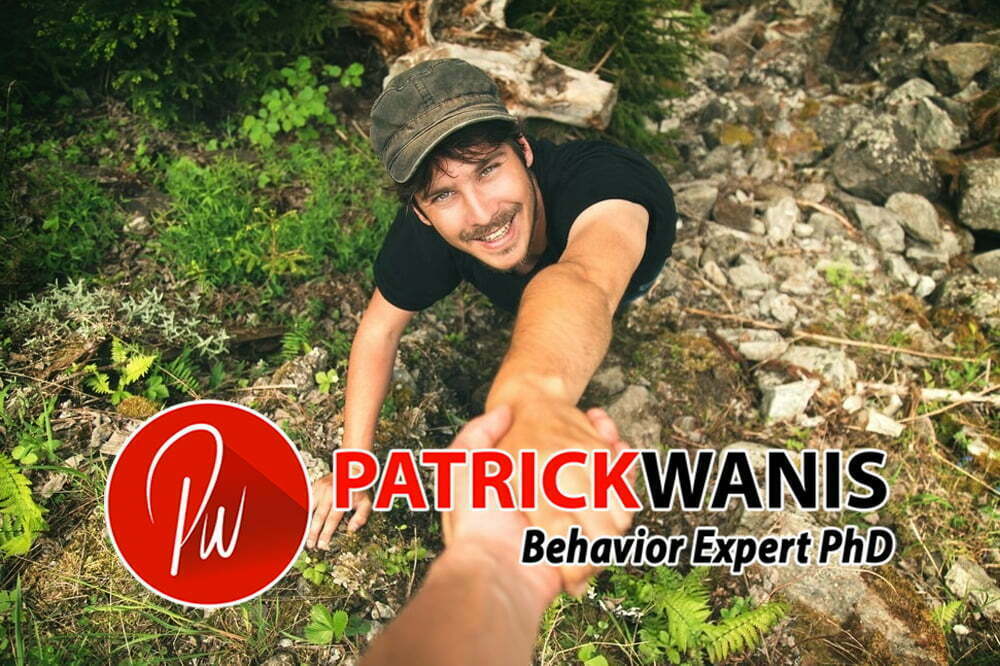
In this week’s Success Newsletter, I would like to reveal the significance of purpose and the scientific finding that doing good is more important for your health & immune system than simply feeling good!
First a quick update:
The Breakup Test
Are you heartbroken, angry, lost, lonely, confused, depressed, or pining over your ex? How would you like to benefit from personalized advice, action steps and revelations? Take my free breakup test and get your own personalized report.
She Died At 27 And Left A Heartbreaking Letter That’ll Make You Cry
Holly Butcher from Australia was just 27 when she lost her battle to Ewing’s sarcoma – a rare form of cancer in and around the bones that mainly affects young people. But a moving letter she penned one week before her death has gone viral after reminding others to cherish life. Watch the video
Now, let’s talk about the scientific finding that doing good is more important for your health & immune system than simply feeling good!
A friend of mine recently explained to me the significance of Rosh Hashanah, the celebration of the Jewish New Year and of God’s creation of the world. Part of the tradition is to ask for forgiveness and to request for one more year of life but with a reason and purpose. In other words, my friend told me you have to pray, ‘God give me one more year of life so I can…’
Thus, you must have a reason to live, a purpose.
Interestingly, science reveals that people who have a purpose actually do live longer and healthier – and that is irrespective of religious beliefs.
In one study of 6,000 people, researchers found that purpose predicts a lower mortality risk.
“Purposeful individuals lived longer than their counterparts during the 14 years after assessment, even when controlling for other markers of psychological and affective well-being. Moreover, these longevity benefits do not appear to be conditional on either the participants’ age, how long they lived, or whether they had retired from the workforce.”
https://www.ncbi.nlm.nih.gov/pmc/articles/PMC4224996/
In another study, lead researcher, Patrick L. Hill, PhD, Carleton University in Canada reveals, “Our findings point to the fact that finding a direction for life, and setting overarching goals for what you want to achieve can help you actually live longer, regardless of when you find your purpose. So the earlier someone comes to a direction for life, the earlier these protective effects may be able to occur.”
Having a purpose infers that you have committed to a set of clear goals for life. Does the nature or type of goals make a difference to your health and longevity?
Yes, it does.
You can derive wellbeing and positive moods from both self-gratification/pleasure and from a purpose that involves doing good for others. The ‘hedonic’ sense of happiness comes from pleasurable goals and activities, while the ‘eudaimonic’ sense of happiness comes from deeper meaningful and purposeful goals which also benefit others and create connection with others.
What is the difference?
The impact on your DNA, genes and your immune system!
One form of happiness leads to health via an anti-inflammatory and anti-viral response in the body, while the other leads to a decrease in the anti-viral response and an high increase in inflammation implicated in stress and a wide spectrum of diseases such as arthritis and heart disease.
In a study by University of North Caroline and UCLA, the researchers drew blood samples from 80 healthy adults who were assessed for hedonic and eudaimonic wellbeing, as well as potentially confounding negative psychological and behavioral factors. The researchers then examined which genes were turned on or off in the cells of each subject’s immune-system.
“We can make ourselves happy through simple pleasures, but those ’empty calories’ don’t help us broaden our awareness or build our capacity in ways that benefit us physically. At the cellular level, our bodies appear to respond better to a different kind of well-being, one based on a sense of connectedness and purpose.”
– Barbara L. Fredrickson, University of North Carolina – lead author of the study
The key point here is that while doing good and feeling good both generate similar levels of positive emotions, they have very different effects on the human genome. “Apparently, the human genome is much more sensitive to different ways of achieving happiness than are conscious minds.”
– Steven Cole, a UCLA professor of medicine and a member of the UCLA Cousins Center
This finding does not imply that you stop seeking pleasurable activities or goals; it simply infers (along with other studies into purpose and longevity mentioned here) that if you want to be healthier, happier and live longer, set new goals that give greater meaning and purpose in your life, and which, benefit others and enhance your connection to other people!
If you would like help to reduce stress and anxiety, discover your own purpose, be set free from the past, to overcome pain or trauma, or to improve your relationships, book a one-on-one session with me.
You can add to the conversation below.
I wish you the best and remind you “Believe in yourself -You deserve the best!”
Patrick Wanis Ph.D.
Celebrity Life Coach, Human Behavior & Relationship Expert & SRTT Therapist
Anointed “The Woman Expert” by WGN Chicago, Patrick Wanis PhD is a renowned Celebrity Life Coach, Human Behavior & Relationship Expert who developed SRTT therapy (Subconscious Rapid Transformation Technique) and is teaching it to other practitioners. Wanis’ clientele ranges from celebrities and CEOs to housewives and teenagers. CNN, BBC, FOX News, MSNBC & major news outlets worldwide consult Wanis for his expert insights and analysis on sexuality, human behavior and women’s issues. Wanis is the first person ever to do hypnotherapy on national TV – on the Montel Williams show.
